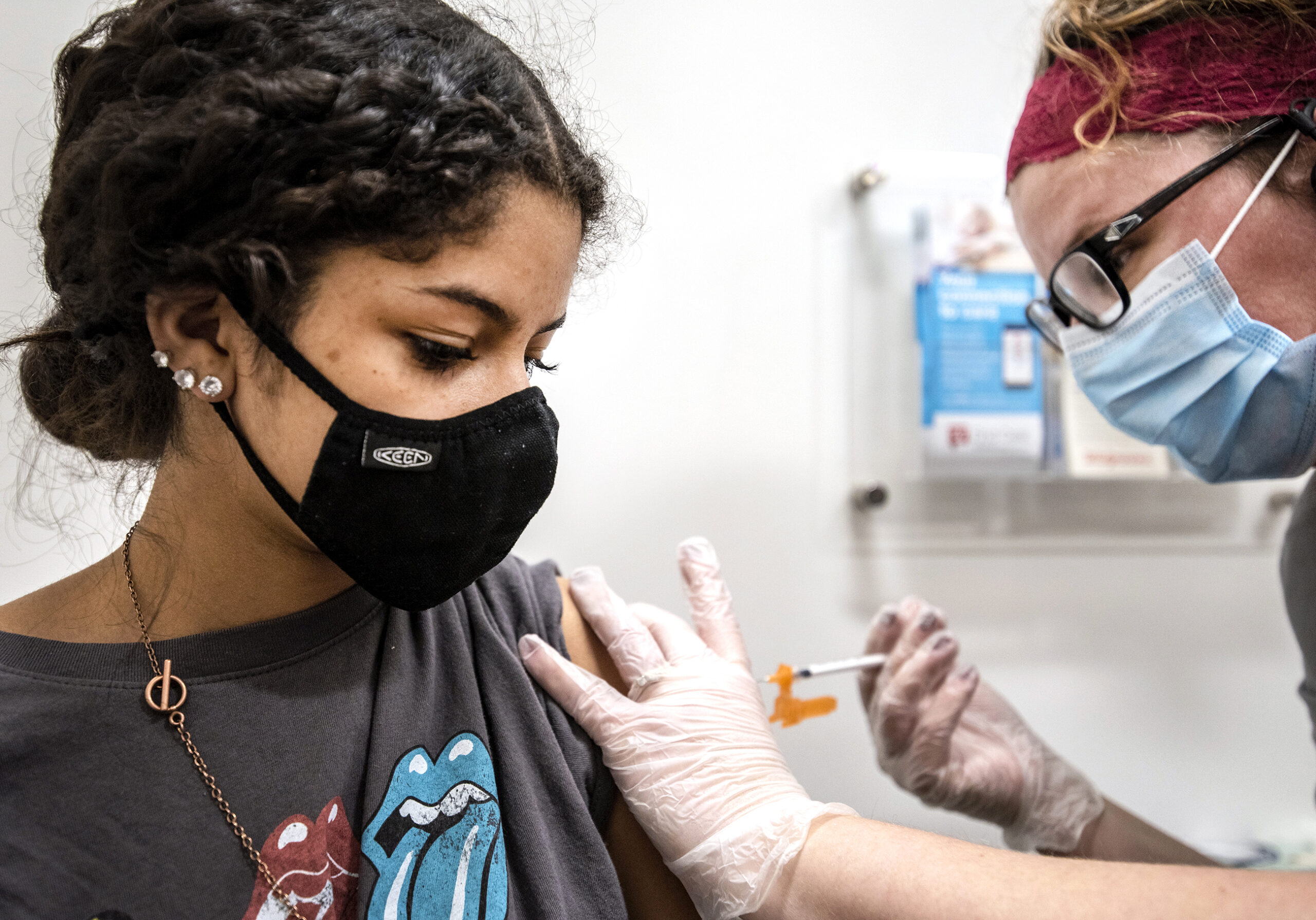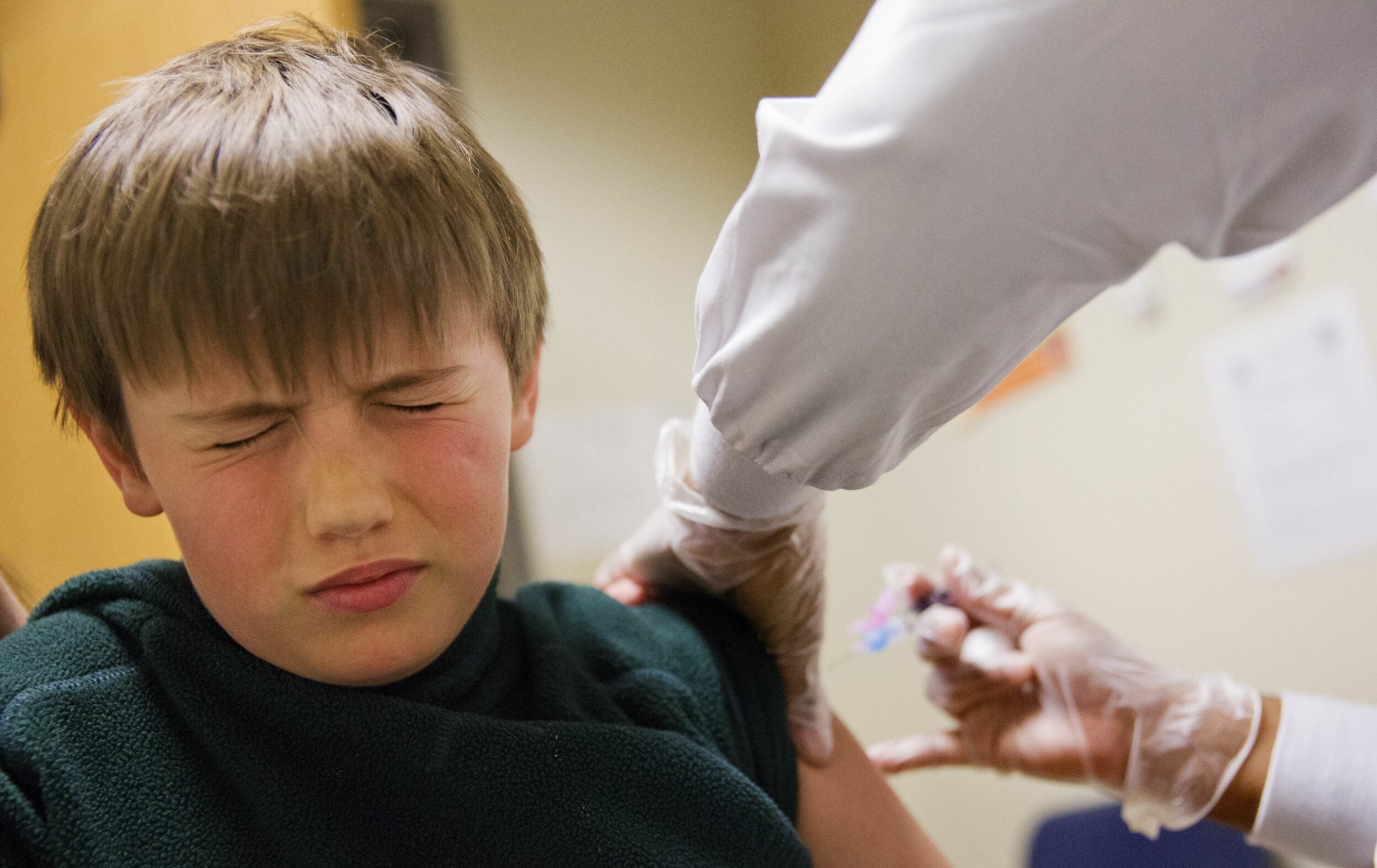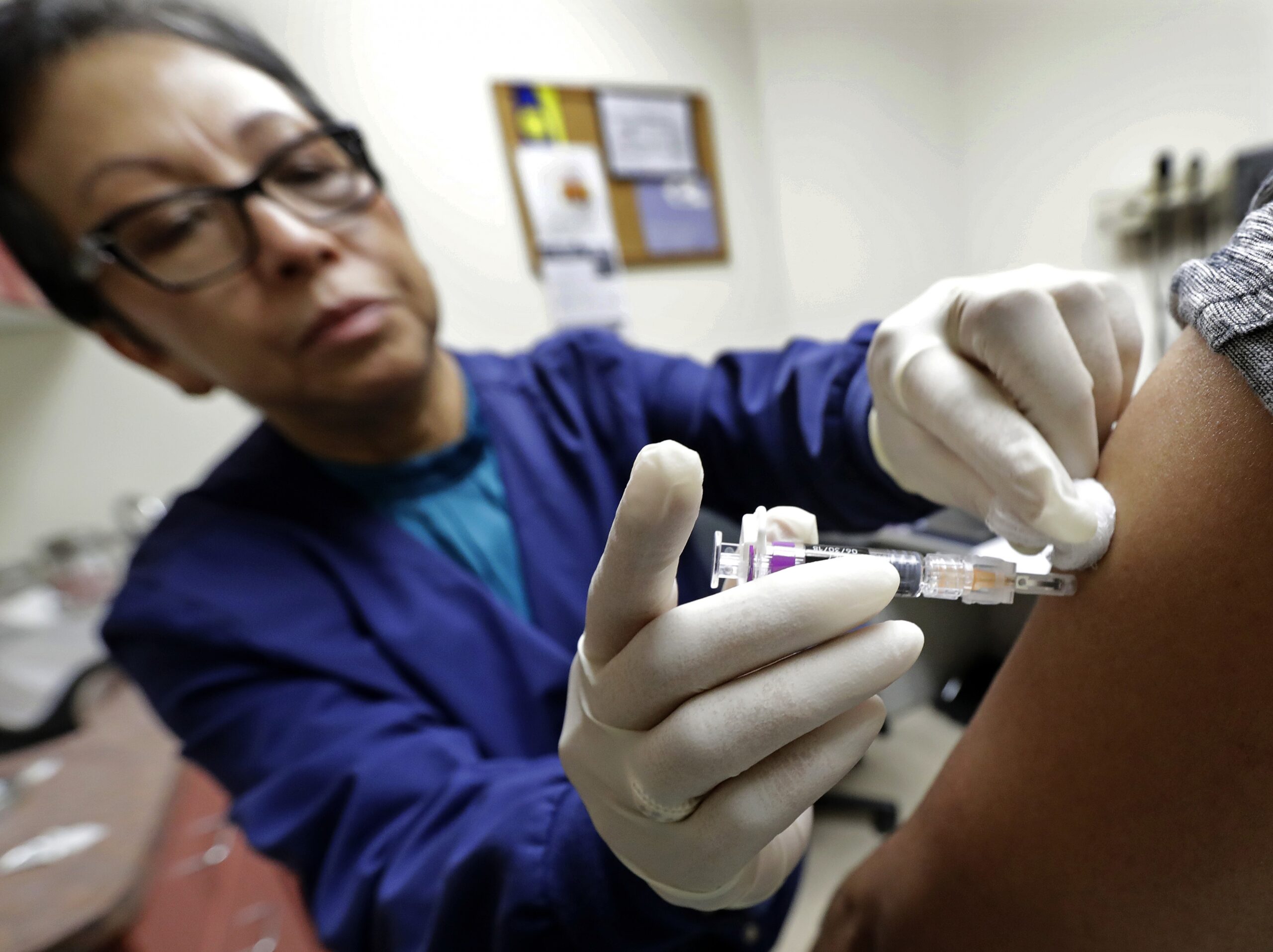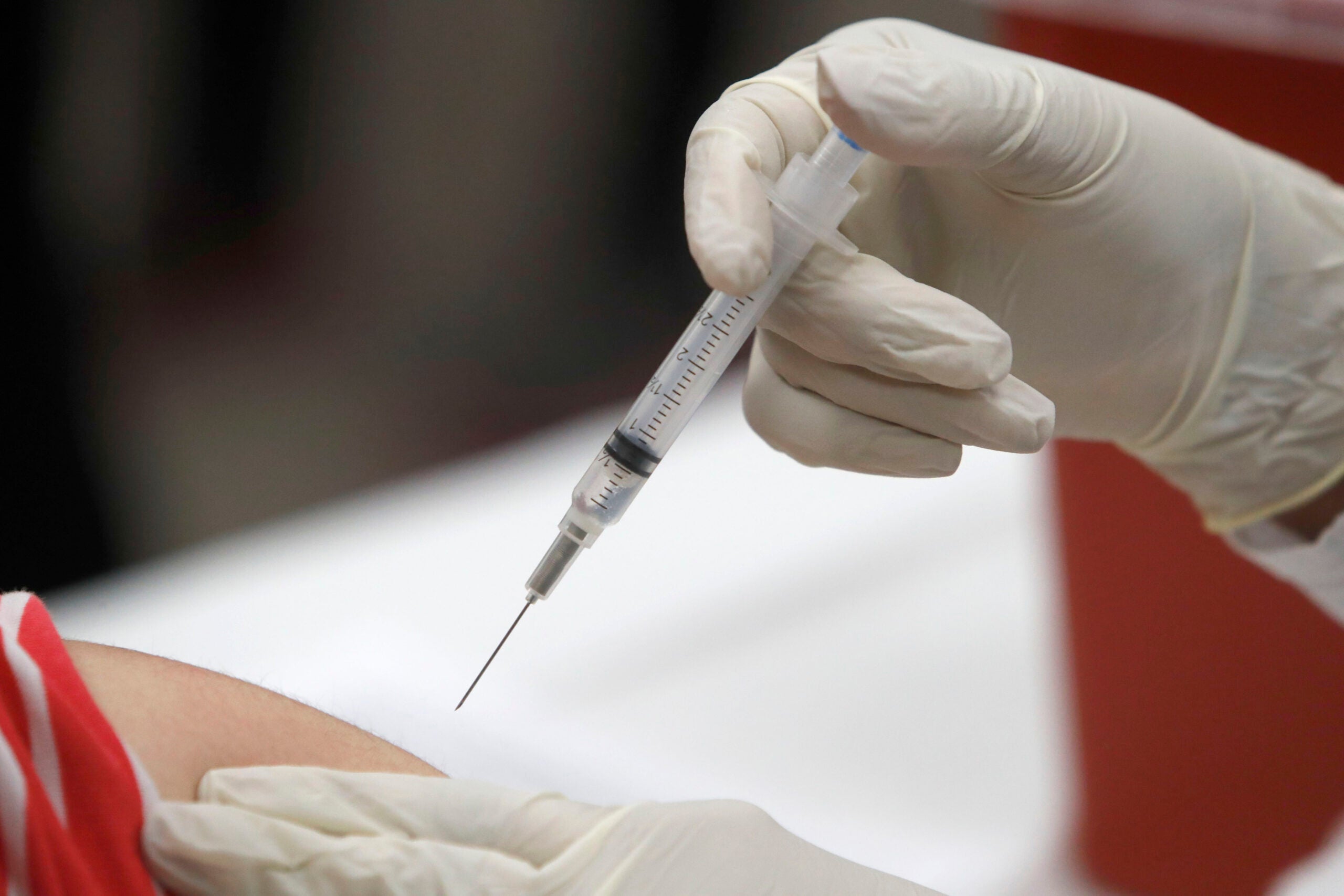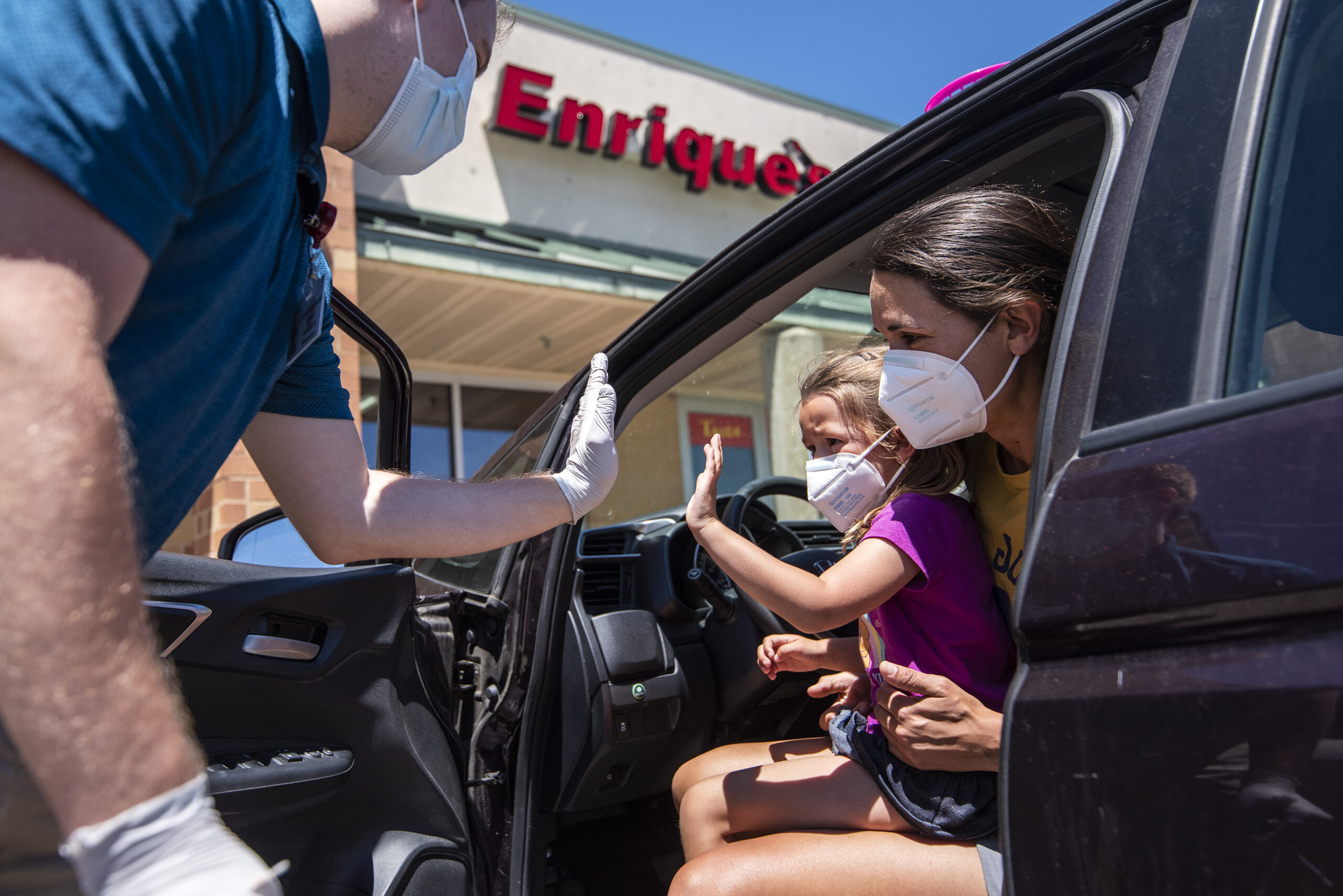Last week, the U.S. Food and Drug Administration approved two updated COVID-19 vaccines. These new vaccines could be available at Wisconsin pharmacies as early as this week.
The FDA approved the 2024-25 season’s COVID-19 vaccines nearly three weeks earlier than it did last year. That’s likely because the U.S. is in the middle of a summer wave of COVID-19 infections that could stretch into September.
While it’s not as high as peak levels last winter, Wisconsin has seen a steady increase in COVID-19 hospitalizations this summer, according to data from the state Department of Health Services.
Stay informed on the latest news
Sign up for WPR’s email newsletter.
“If we go all the way back to the beginning of COVID, we are now starting to see that every year we’re having two peaks: a big peak in the wintertime and a lesser peak in the summertime,” Dr. Jonathan Temte said in an interview on WPR’s “Wisconsin Today.” “We’re right in the middle of that summer peak right now.”
Temte is associate dean for public health and community engagement at the University of Wisconsin School of Medicine and Public Health. He also serves on the Centers for Disease Control and Prevention’s COVID-19 Vaccine Work Group and the Adult RSV Vaccine Work Group.
Temte shared a few tips for what to expect from the new COVID-19 vaccines and how to prepare for the respiratory virus season.
When is the best time to get the new COVID-19 vaccine?
Anyone 6 months or older should get the updated COVID-19 vaccine this fall, Temte said.
The newly approved COVID-19 vaccines target the KP.2 variant, which is in high circulation right now. Health officials recommend that older adults and immunocompromised people get the new vaccine as soon as possible.
Other adults might choose to ride out the summer wave and get vaccinated midway through the fall to ensure peak protection for travel and large gatherings during the winter holiday season.
For Temte, the most important thing is following through on getting the vaccine when and where you can.
“When it’s available and when you’re able to get to your pharmacy or physician’s office, that’s a really good time to get the vaccine,” he said.
Regardless of the timing, Temte said patients can “jump the line” and get an updated COVID-19 vaccine even if they are not up to date on previous boosters.
“We don’t have to worry about sequencing,” he said. “We can just go ahead and vaccinate.”
To streamline the process, patients can also get an annual flu shot at the same time as the COVID-19 vaccine.
“People can get them separately, but if you’re in the doctor’s office or the pharmacy, why not roll up the sleeve and get both?” Temte said.
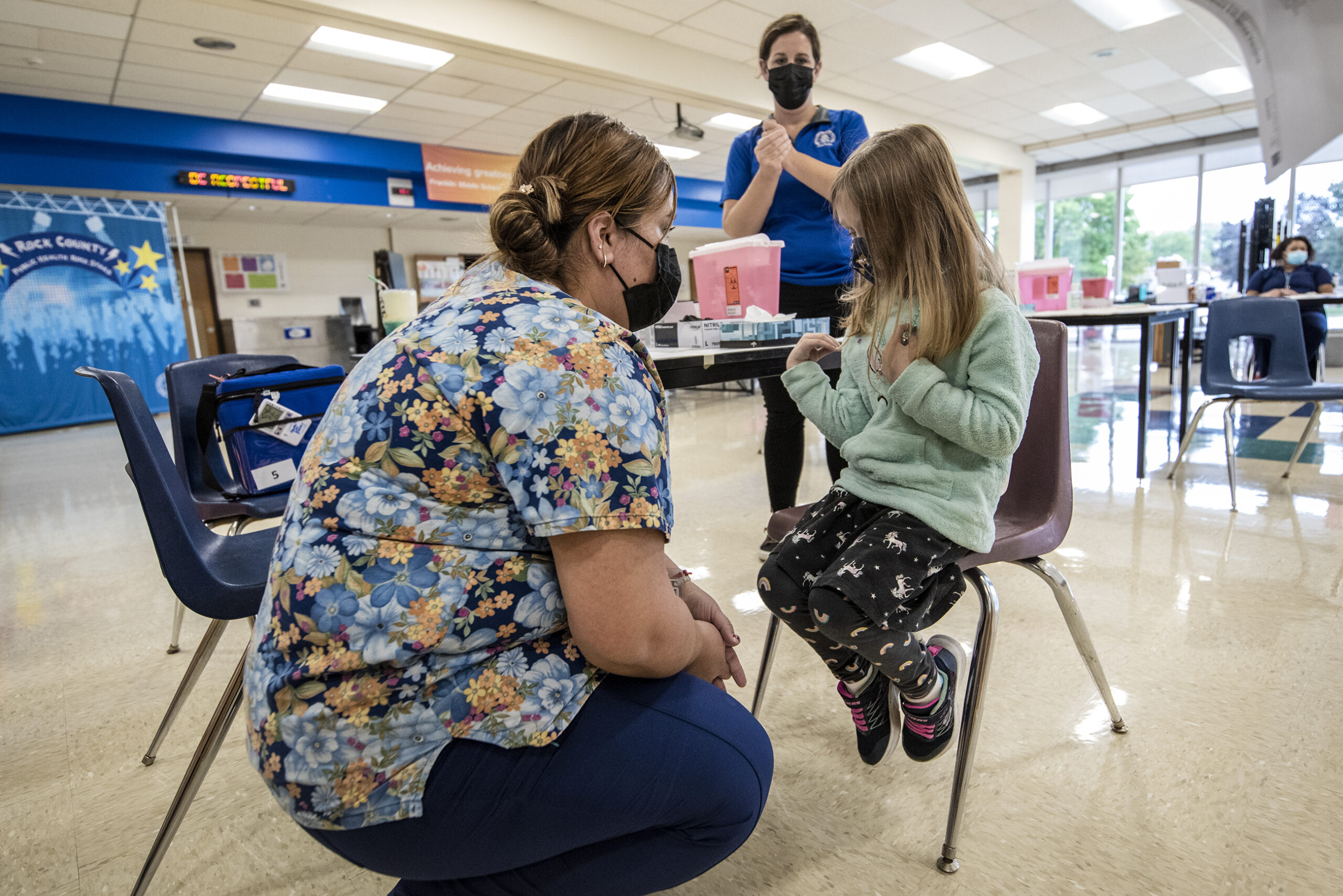
Why are COVID-19 vaccines still recommended?
Much like the flu, the virus that causes COVID-19 mutates over time, which is why there are now annual vaccines that target the latest variants.
Temte said that while the virus has not become more harmful over time, it is getting increasingly transmissible.
“The virus we have right now is very easily transmitted human to human, but we have the benefit of not only a safe and effective vaccine but also the benefit of previous exposure or previous infection,” he said. “Both those really tamp down the likelihood of having a bad outcome.”
However, that strategy depends in part on a high vaccination rate, and public health experts worry about the low uptake of the latest COVID-19 vaccines.
“In Wisconsin, less than 19 percent of us have received the last updated vaccine … that was available last fall,” Temte said. “That’s way too low to protect us against this devastating disease.”
According to data from the state health department, COVID-19 hospitalizations saw a 20-percent increase in the first half of the month.
“Over the last three weeks in Wisconsin, we had 32 deaths attributable to COVID-19,” Temte said. “So, it’s still out there. It’s still circulating. And there are things we can do to protect against it.”
What about RSV?
Respiratory syncytial virus, or RSV, has been drawing increased attention since the FDA approved the first RSV vaccine last spring.
While RSV is common, it can be dangerous for infants and older adults, according to the CDC.
The RSV shot is recommended for all adults over the age of 75, along with people 60 and up who are immunocompromised due to asthma, heart disease or other health problems, Temte said.
Pregnant people are also eligible to receive an RSV vaccine in order to pass protection on to the unborn child. Infants born during RSV season can get a one-time monoclonal antibody injection that offers six months of protection.
“I really want to stress that both the maternal and the childhood (RSV) vaccine are incredibly safe,” Temte said.
